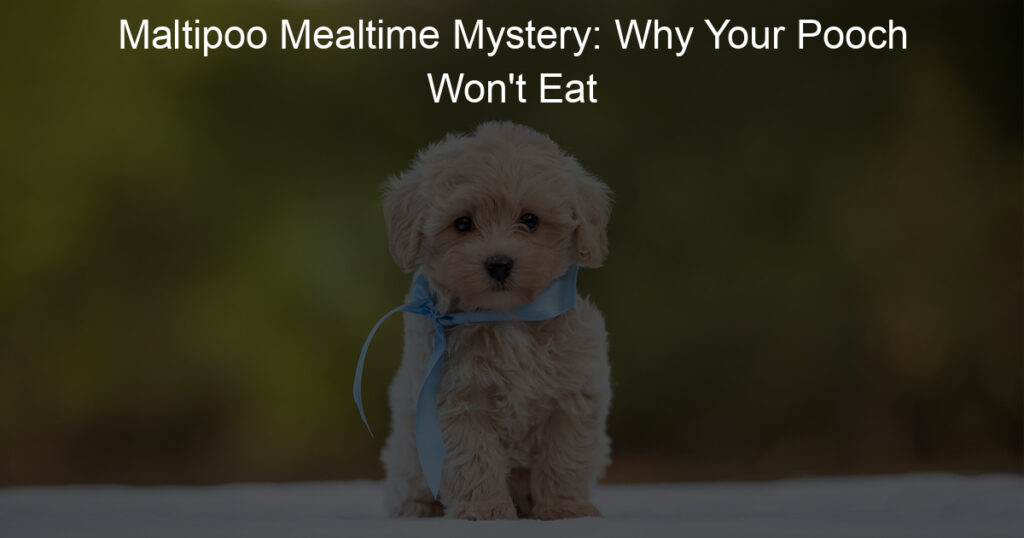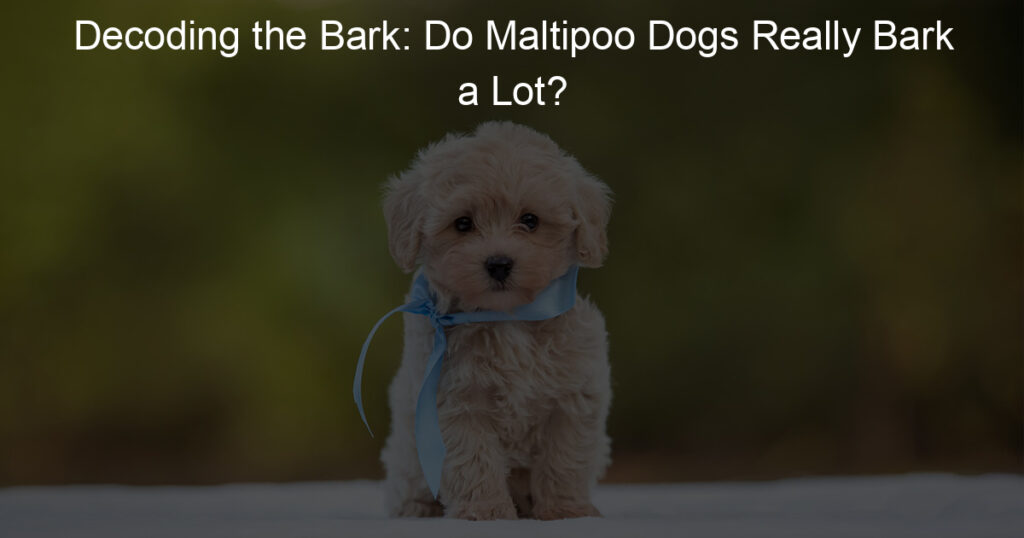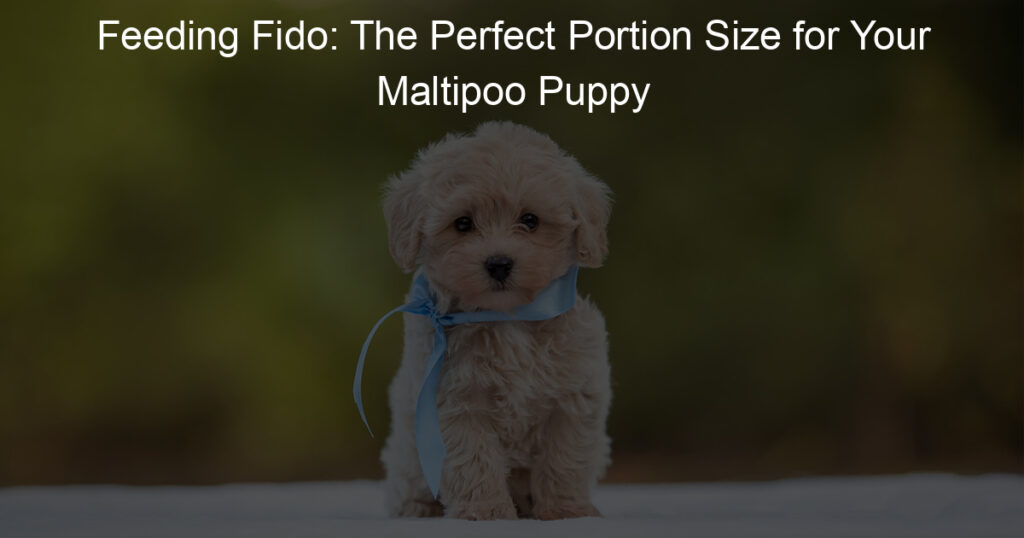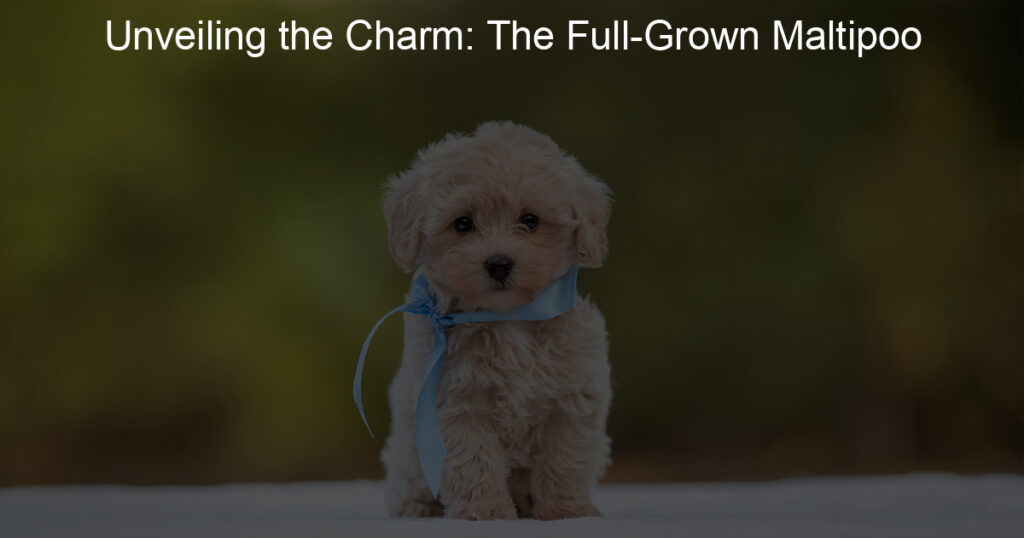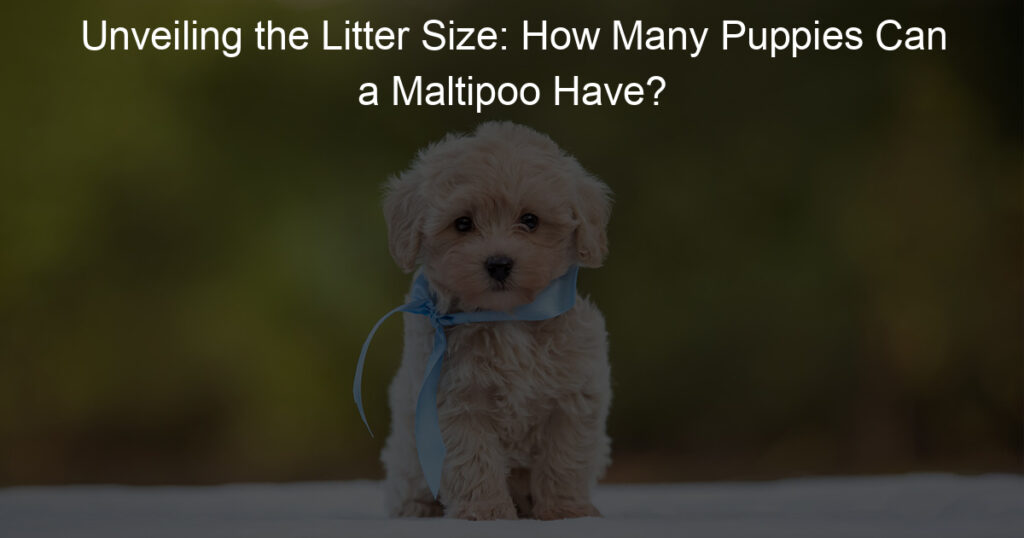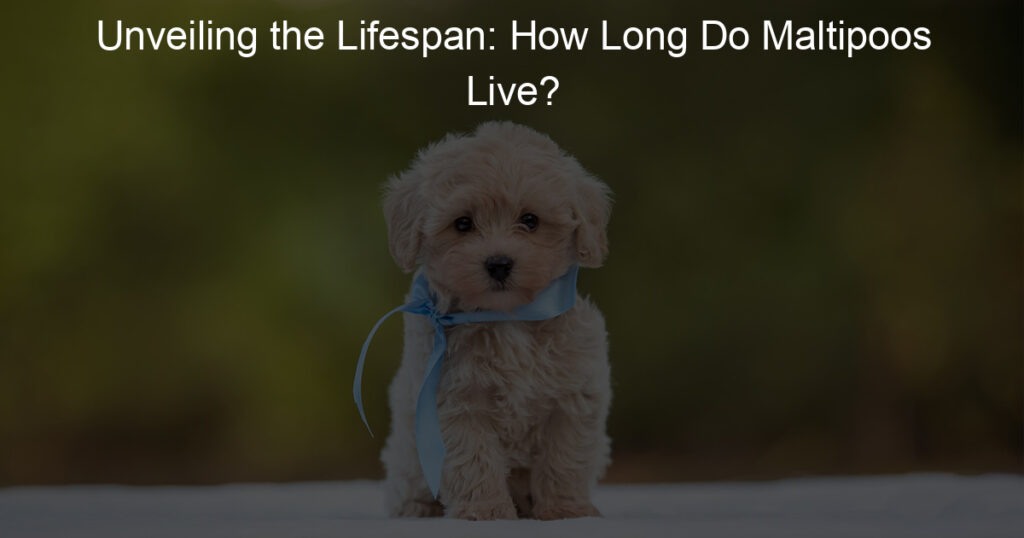
Introduction: Understanding Maltipoo Eating Habits
As a Maltipoo owner, it’s essential to understand your furry friend’s eating habits. This knowledge will help you ensure they’re getting the right nutrition for a healthy and happy life. In this article, we’ll explore the Maltipoo breed, their typical diet, and why nutrition is so important for their health.
- Overview of Maltipoo breed
- Typical Maltipoo diet
- Importance of nutrition for Maltipoo health
The Maltipoo is a popular hybrid breed, a mix between a Maltese and a Poodle. Known for their playful and affectionate nature, Maltipoos are small dogs that typically weigh between 5 to 20 pounds. They have a lifespan of 10 to 15 years, which can be significantly influenced by their diet and overall health.
Maltipoos thrive on a balanced diet that includes proteins, carbohydrates, fats, vitamins, and minerals. Proteins are vital for their muscle development, while carbohydrates provide them with the energy they need for their playful activities. Healthy fats contribute to their shiny coat, and vitamins and minerals support their overall health. A typical Maltipoo diet might include high-quality dry dog food, occasional wet food, and healthy treats.
Good nutrition is crucial for a Maltipoo’s health. A balanced diet helps maintain their energy levels, supports their immune system, and contributes to a healthy coat and skin. It also aids in digestion and helps prevent obesity, a common issue in small dog breeds. Remember, a well-fed Maltipoo is a happy and healthy Maltipoo.
In the following sections, we’ll delve deeper into common Maltipoo feeding problems, reasons why your Maltipoo might not be eating, and how to address appetite loss. By the end of this article, you’ll be equipped with the knowledge to ensure your Maltipoo’s nutritional health.
Common Maltipoo Feeding Problems
Feeding problems can occur in any breed of dog, and Maltipoos are no exception. One common issue that Maltipoo owners often face is food refusal. In this section, we will delve into the reasons behind this behavior, provide a case study, and offer key takeaways on how to handle this issue effectively.
Maltipoo Food Refusal
- Reasons for Maltipoo Food Refusal
- Case Study: Maltipoo Refusing to Eat
- Key Takeaway: How to Handle Maltipoo Food Refusal
There are several reasons why your Maltipoo might refuse to eat. These can range from health issues, such as dental problems or gastrointestinal disorders, to psychological factors like stress or changes in the environment. It’s also possible that your Maltipoo simply doesn’t like the taste or texture of its food.
Consider the case of Bella, a 2-year-old Maltipoo. Bella’s owner noticed that she had started refusing her usual kibble. After a visit to the vet, it was discovered that Bella was suffering from a dental issue that made chewing painful. Once the dental problem was addressed, Bella happily returned to her regular eating habits.
If your Maltipoo is refusing to eat, the first step is to rule out any health issues. Consult with your vet to ensure there are no underlying medical problems. If your Maltipoo is healthy but still refusing to eat, consider changing their diet. Try different flavors or textures of food. Remember, patience and consistency are key when introducing new foods to your pet.
In conclusion, Maltipoo food refusal can be a worrying sign for pet owners. However, by understanding the possible reasons and taking appropriate action, you can ensure your Maltipoo maintains a healthy appetite and diet.
Maltipoo Diet Issues
Just like humans, Maltipoos can also experience diet-related issues. These issues can affect their overall health and well-being. Let’s take a closer look at some of the common diet issues in Maltipoos, their impact on health, and an example of a Maltipoo suffering from diet issues.
- Common diet issues in Maltipoos
- Impact of diet issues on Maltipoo health
- Example: Maltipoo suffering from diet issues
Maltipoos, being small breed dogs, are prone to certain diet-related issues. These can range from food allergies to obesity. Food allergies often result from certain proteins or grains in their diet. Obesity, on the other hand, is usually a result of overfeeding or lack of exercise. Other common diet issues include pancreatitis and dental problems, which can be caused by a high-fat diet or hard-to-chew foods, respectively.
Diet issues can have a significant impact on a Maltipoo’s health. For instance, food allergies can lead to skin irritations, digestive problems, and even behavioral changes. Obesity can put undue stress on their small bodies, leading to joint issues and a decreased lifespan. Pancreatitis can cause severe abdominal pain and vomiting, while dental problems can lead to tooth loss and difficulty eating. Therefore, it’s crucial to monitor your Maltipoo’s diet and ensure they are eating healthily.
Consider the case of Bella, a 4-year-old Maltipoo. Bella’s owner noticed that she was gaining weight rapidly and seemed less energetic than usual. Upon consulting with a vet, it was discovered that Bella was being overfed and not getting enough exercise, leading to obesity. Bella’s diet was adjusted, and her owner was advised to increase her daily exercise. With these changes, Bella was able to return to a healthy weight and regain her energy.
In conclusion, diet issues in Maltipoos can be serious but are often preventable with proper care and attention to their dietary needs. Always consult with a vet if you notice any changes in your Maltipoo’s eating habits or overall health.
Reasons Your Maltipoo Won’t Eat
It can be quite worrying when your beloved Maltipoo refuses to eat. This could be due to various reasons, including health issues and personal food preferences. Let’s delve into the health-related factors that could be affecting your Maltipoo’s appetite.
Maltipoo Health Issues
Health issues can significantly impact your Maltipoo’s eating habits. It’s crucial to understand these health problems to ensure your pet maintains a healthy diet.
- Health issues that affect Maltipoo appetite
- Key takeaway: Importance of regular vet check-ups
Several health problems can cause your Maltipoo to lose their appetite. These include dental issues, gastrointestinal problems, and even serious conditions like cancer. Dental problems can make chewing painful, while gastrointestinal issues can cause nausea, making your pet reluctant to eat. On the other hand, severe illnesses like cancer can lead to a general loss of appetite.
Regular vet check-ups are vital in maintaining your Maltipoo’s health. These check-ups can help detect any health issues early, allowing for timely treatment. If your Maltipoo is refusing to eat, it’s advisable to schedule a vet appointment immediately to rule out any serious health problems.
Understanding the health issues that can affect your Maltipoo’s appetite is the first step towards ensuring they maintain a healthy diet. Regular vet check-ups are also crucial in detecting any potential health problems early. Remember, a healthy Maltipoo is a happy Maltipoo!
Maltipoo Food Preferences
When it comes to feeding your Maltipoo, understanding their food preferences is crucial. Maltipoos, like humans, have their own unique tastes and dietary needs. Let’s delve deeper into this topic.
- Understanding Maltipoo food preferences
- How to cater to your Maltipoo’s food preferences
Maltipoos are known for their love of a varied diet. They enjoy a mix of dry and wet food, with a preference for high-quality, protein-rich meals. They also enjoy fruits and vegetables, which provide essential vitamins and minerals. However, it’s important to remember that not all human foods are safe for Maltipoos. Foods like chocolate, grapes, and onions can be harmful to them.
Now that you understand your Maltipoo’s food preferences, it’s time to cater to them. Start by introducing a variety of high-quality, protein-rich foods into their diet. This could include chicken, turkey, or fish. Next, add in some fruits and vegetables. Apples, carrots, and peas are all excellent choices. Remember to introduce new foods gradually to avoid upsetting your Maltipoo’s stomach.
In conclusion, understanding and catering to your Maltipoo’s food preferences can help ensure they maintain a healthy diet. Remember, every Maltipoo is unique. What works for one may not work for another. Therefore, it’s important to monitor your Maltipoo’s reaction to new foods and adjust their diet accordingly.
Addressing Maltipoo Appetite Loss
It’s essential to understand that appetite loss in your Maltipoo can be a cause for concern. However, it’s often related to their behavior. Let’s delve deeper into this topic.
Understanding Maltipoo Behavior
Maltipoos are known for their lively and playful nature. However, like all dogs, they can experience changes in their behavior which can affect their appetite. Here are some behavioral reasons that might be causing your Maltipoo’s appetite loss.
- Behavioral reasons for Maltipoo appetite loss
- Case study: Maltipoo with appetite loss due to behavioral issues
- Key takeaway: How to address behavioral issues affecting Maltipoo appetite
There are several behavioral reasons that might lead to appetite loss in your Maltipoo. These can include stress, anxiety, or even boredom with their food. Changes in their environment, such as a new home or family member, can also affect their eating habits. It’s important to monitor these changes and consult with a vet if your Maltipoo’s appetite doesn’t improve.
Consider the case of Bella, a two-year-old Maltipoo. Bella’s owners noticed a significant decrease in her appetite when they moved to a new house. After consulting with a vet, they found out that Bella was experiencing stress due to the change in her environment. By gradually acclimating Bella to her new surroundings and introducing new, exciting foods, her appetite gradually returned to normal.
Addressing behavioral issues that affect your Maltipoo’s appetite involves understanding the cause and finding a solution. If the issue is stress or anxiety, try to eliminate the source of stress. If your Maltipoo is bored with their food, consider introducing new, healthy options. Always consult with a vet if you’re unsure or if your Maltipoo’s appetite doesn’t improve.
In conclusion, understanding your Maltipoo’s behavior is key to addressing their appetite loss. By being observant and proactive, you can ensure your furry friend stays healthy and happy.
Conclusion: Ensuring Your Maltipoo’s Nutritional Health
As we wrap up our discussion on Maltipoo eating habits and feeding problems, it’s important to remember that maintaining your pet’s nutritional health is a responsibility that should not be taken lightly. Let’s take a moment to recap what we’ve learned and provide some final thoughts on this topic.
- Recap of Maltipoo Eating Habits and Feeding Problems
- Final Thoughts on Maintaining Your Maltipoo’s Nutritional Health
Maltipoos, like any other breed, have their unique eating habits. They are small dogs with a big appetite and can be prone to overeating if not monitored. This can lead to obesity and other health issues. On the other hand, some Maltipoos may face feeding problems like loss of appetite due to various reasons such as stress, illness, or simply being picky eaters. It’s important to understand these habits and problems to provide the best care for your furry friend.
Ensuring your Maltipoo’s nutritional health is not just about feeding them the right amount of food. It’s also about providing them with a balanced diet that includes all the essential nutrients they need to stay healthy and active. Regular vet check-ups can also help monitor your Maltipoo’s health and detect any potential issues early. Remember, a healthy Maltipoo is a happy Maltipoo!
In conclusion, taking care of your Maltipoo’s nutritional health requires understanding their eating habits, identifying any feeding problems, and providing a balanced diet. It may seem like a lot of work, but the reward of seeing your Maltipoo thrive is definitely worth it. So, keep these tips in mind and ensure your Maltipoo’s nutritional health is always at its best!

